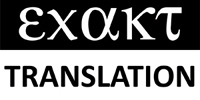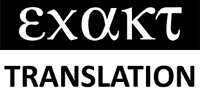1. Why should we choose to work with you instead of a translation agency? It is a common practice for translation agencies to outsource their projects to subcontractors. If you choose to work with a translation agency, you have no guarantee of continuity nor consistency as your project gets broken down into many different pieces and farmed out; and you will usually have no direct contact with the translator. We, on the other hand, aim to ensure that all of your projects are handled by the same translator. Another factor worth considering is the high overhead of translation agencies. In their attempt to be “all things to all people”, agencies are typically overmanned with various ancillary staff who require vacation, healthcare and benefits. Additionally, agencies are housed in big offices with expensive rents and costly utilities. Though usually having no direct influence on the quality of translations, all these are included in the fees charged by large translation agencies. If you do not wish to pay for these kind of overheads and extra charges, then you are welcome to work directly with our translation team.
2. Do you have a physical office? We do not have an ‘office’ in the traditional sense of the word. We are a web-based team of translators based primarily in Singapore and working in our home-offices. We do not see the need to spend thousands of dollars for an office. The absence of rent payments on our part translates into cost savings for you through our competitive fees. Not having an office does not mean that you cannot get in touch with us. To discuss your project requirements, feel free to contact us via phone, email or our web forms. We will also be happy to meet you at your office for discussions.
3. Can you provide translation services in other languages in addition to Chinese and English? At present, no. We prefer to focus solely on the languages that our own team of staff is qualified to either translate or edit; and at the moment those would be Chinese and English. Many translation agencies claim to “specialize” in all language pairs. In our opinion it is extremely difficult to specialize in everything and yet still provide high quality. For multi-language projects it is advisable to contact a reputable translation company with the appropriate language combinations and localization resources. Let us know if you need advice or suggestions.
4. Why should I be paying to translate my document? There are many sites offering free online translation of texts. Such sites translate your texts using a method known as ‘machine translation’ which is essentially the simple substitution of words in one language for words in another. Machine translation provides a handy tool for looking up a word in languages that you are unfamiliar with, or for understanding the gist of what a foreign language web page is all about. However, it has limited usefulness for those requiring more precise and accurate information. Effective translation is about far more than just the substitution of simple words. It is equally as much about the context, culture as well as the subtleties of meaning. Translating messages between different languages and cultures requires more intelligence than the algorithms of machine translation can provide. Only qualified human translators who understand the nuances of the languages well can help you achieve accurate results – and avoid potentially embarrassing translations.
5. I have an employee who knows both the source and target languages. Why can't I just get him/ her to translate my documents? Knowing a language does not mean that one is proficient in it; and knowing multiple languages does not make one a translator. In low-stakes situations such as when you are trying to make sense of a foreign language web page, it may be alright to get someone who ‘knows’ both the source and target languages to translate the texts. However, when the stakes are higher and public or customer-facing documents are involved, it is advisable to leave the translation to the professionals.
6. What document formats do you accept? We can work with the following file formats:
7. What forms of payments do you accept? We accept credit cards, PayPal, checks, cash and bank transfers.

